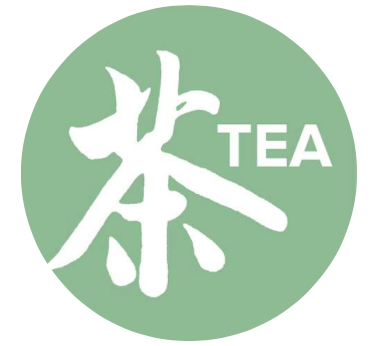Event Date
Register Now for the 10th Annual Colloquium - Tea and Peace: Bringing Communities Together
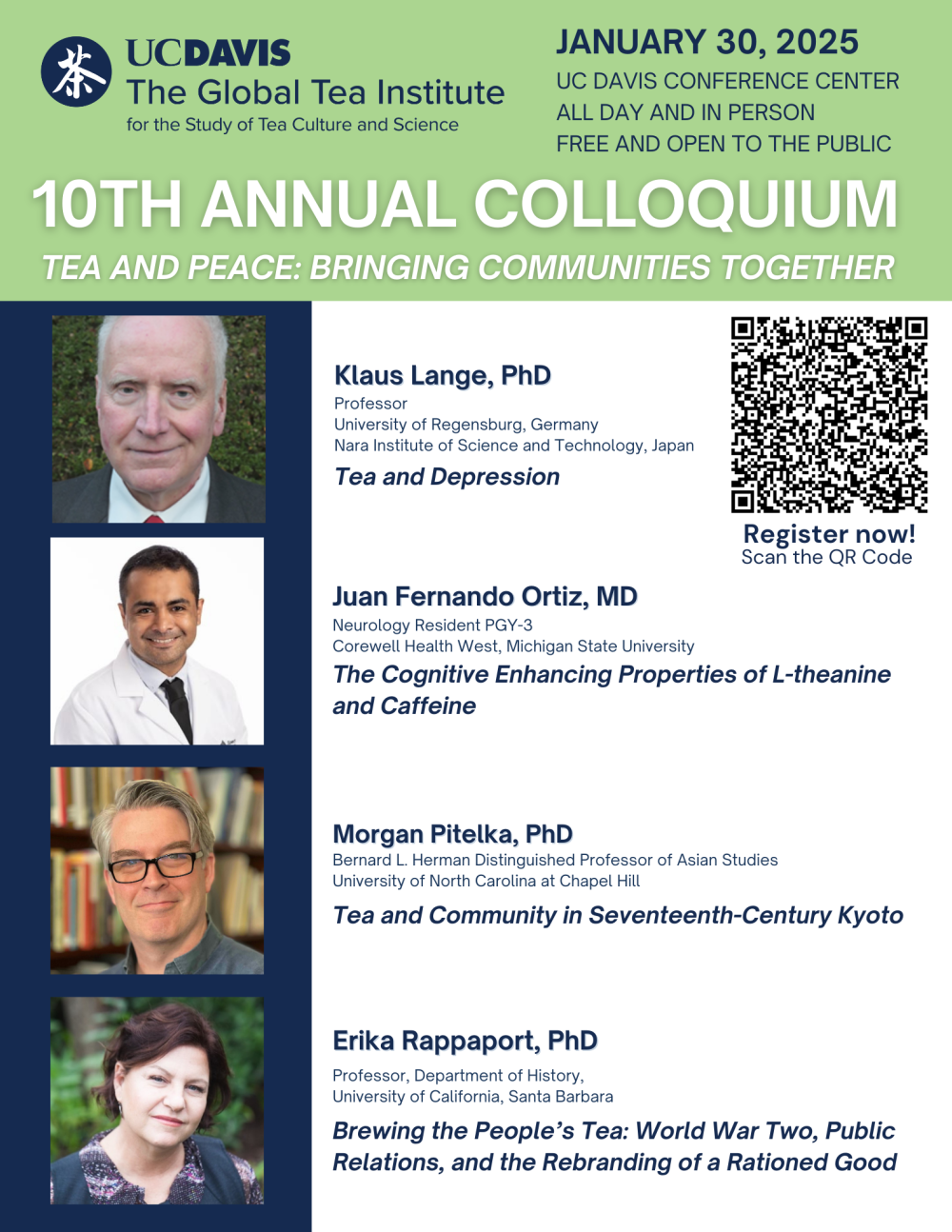
This Year's Program
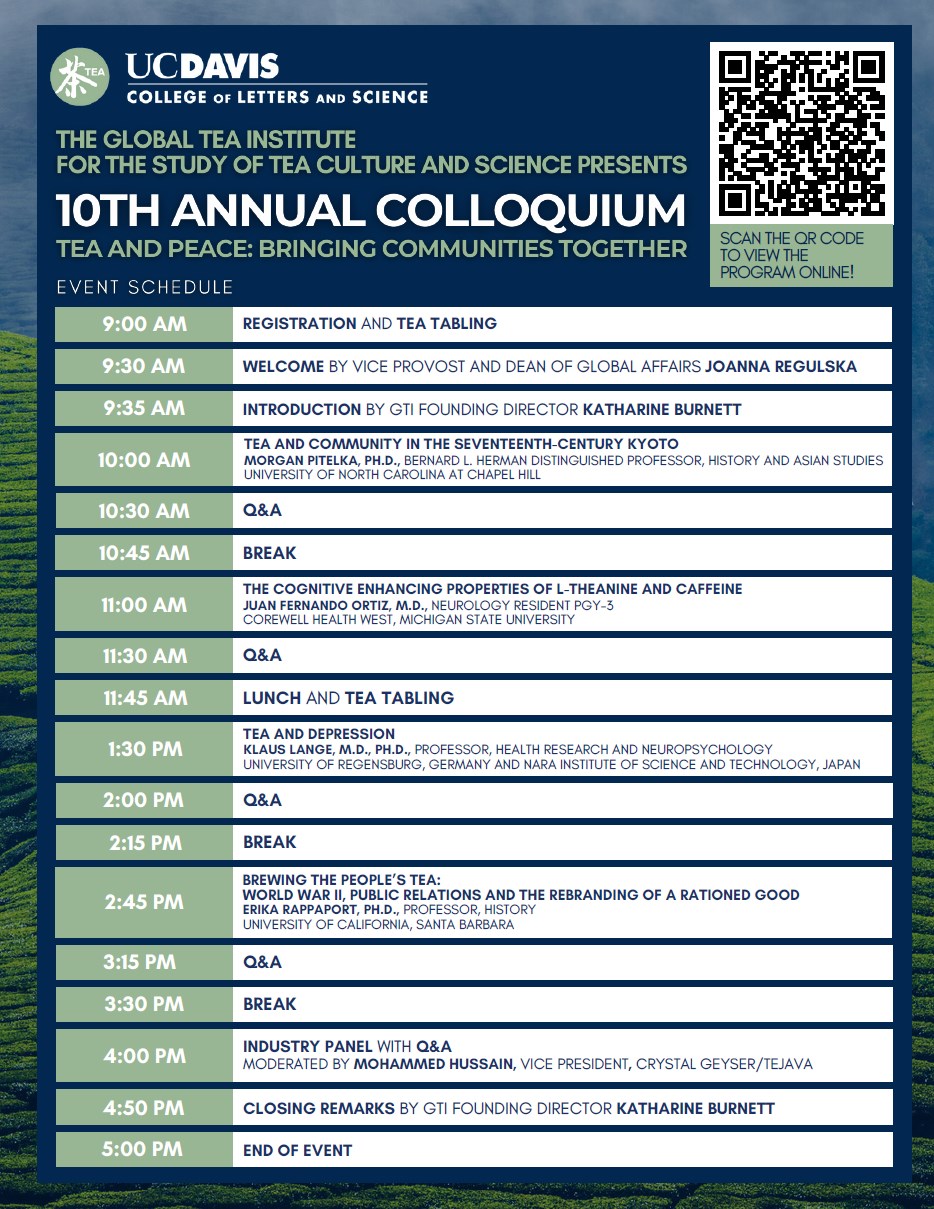
Download The 10th Annual Colloquium Program
About the Event
To celebrate the 10th Anniversary of the Global Tea Institute for the Study of Tea Culture and Science, GTI is hosting its 10th Annual Colloquium on the theme, Tea and Peace: Bringing Communities Together. With this theme, we recognize the important role tea plays in soothing the soul and bringing people together, whether we gather to share a moment or before negotiating a deal. Through a full day of thought-provoking presentations, experts will show how the theme affects culture and society, science, health, and the industry. Please join us!
This Year's Speakers
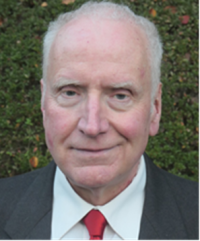
Klaus Lange, MD, PhD
Professor, University of Regensburg, Germany
Nara Institute of Science and Technology, Japan
The available evidence, which derives from studies investigating mechanistic effects of tea, research on animal models as well as epidemiological studies and intervention trials in humans, suggests that compounds contained in tea may have the potential to aid in the prevention of depression or in its treatment as an addition to established therapies. If positive effects on mood could be firmly established, tea drinking could support mental health. However, the moderate anti-depressive effects observed in healthy people are not necessarily indicative of possible clinical effects in depressive disorders.

Juan Fernando Ortiz, MD
Neurology Resident PGY-3
Corewell Health West, Michigan State University
Nootropic drugs and cognitive enhancers are a common theme and research topic, as human beings are eager to explore the brain’s limitless potential. L Theanine and Caffeine are natural compounds that combined have been shown to boost cognition,
concentration, and reaction time. This talk will discuss the mechanism and results of previous regarding the cognitive enhancing properties of caffeine and L- theanine.

Morgan Pitelka, PhD
Bernard L. Herman Distinguished Professor of History and Asian Studies
University of North Carolina at Chapel Hill
Kyoto in the seventeenth century was recovering from a century of civil war and the removal of government to Edo under the new rule of the Tokugawa shoguns. Yet the old imperial capital continued to serve as the thriving center of cultural creativity, largely through the rich entanglements of aristocratic poets, entrepreneurial merchants, urban artisans, and other local luminaries. This presentation will examine the emergence and efflorescence of this fertile community of creatives through their shared investment in the practice of chanoyu, the performative preparation and serving of matcha (powdered green tea) in specialized tea rooms using diverse art objects as utensils.
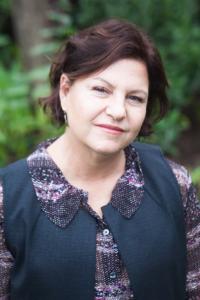
Erika Rappaport, PhD
Professor, Department of History
University of California, Santa Barbara
During the Second World War a hot cup of tea reached iconic status in Great Britain. Tea came to be seen as especially calming and unifying during stressful periods such as war. This paper argues however that the imperial tea industry, which included growers, distributers, and planters, used modern public relations and advertising techniques to create tea’ wartime mythology. This campaign solidified tea’s place in the national consciousness despite rationing and shortages and it shows the ways in which the tea industry contributed to the development of modern public relations.
This Year's Industry Panel Speakers

Mohammed Husain
Vice President of Operations & Product Development - Crystal Geyser Water Co/Tejava

Nishchal (Nish) Banskota
Founder, Nepal Tea Collective

Koji Yamada
Director of Innovation Otsuka CO-LAB, Ekomi

Fajar Yusuf
Consul for Economic Affairs, Consulate General of the Republic of Indonesia in San Francisco
